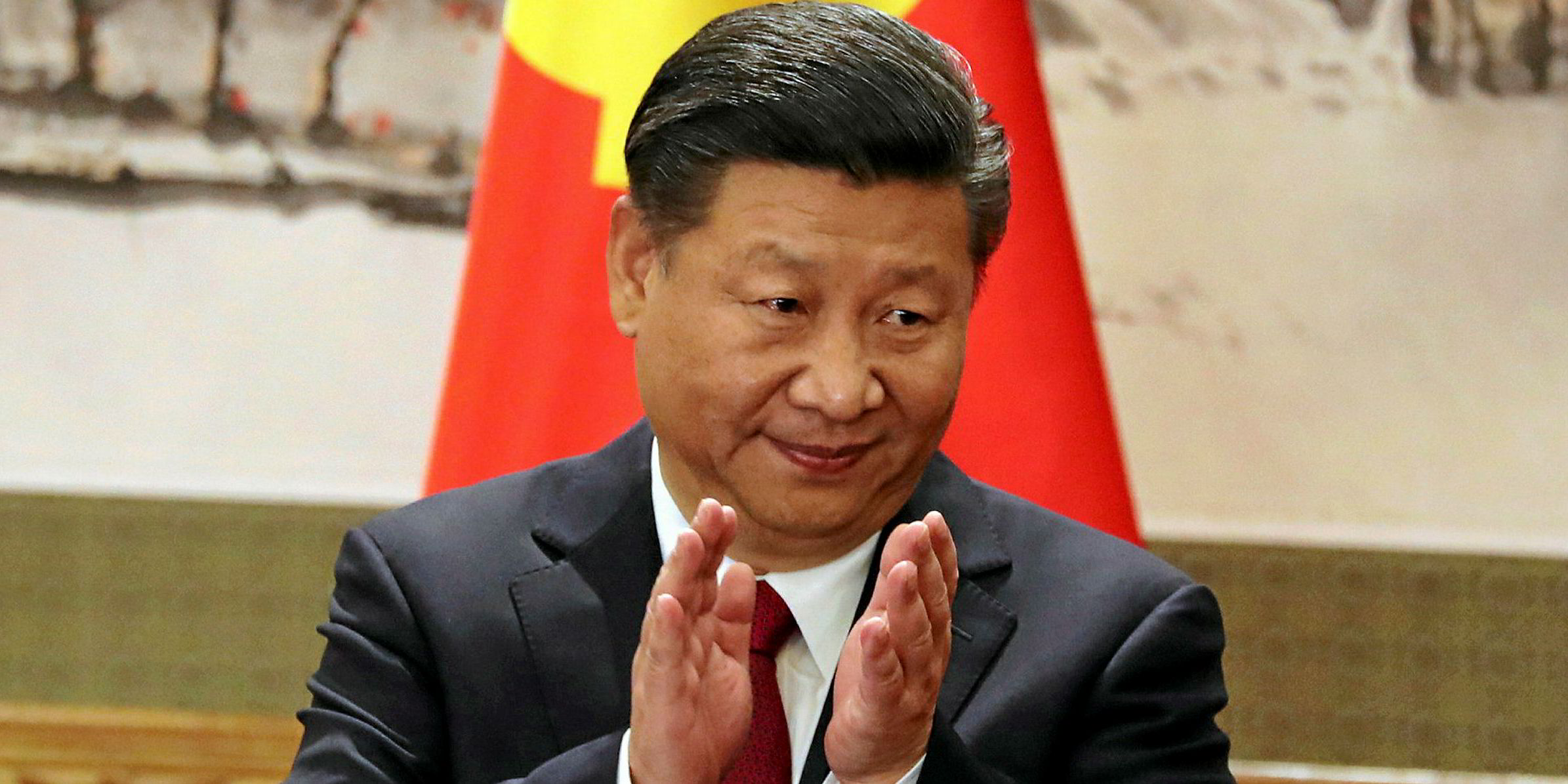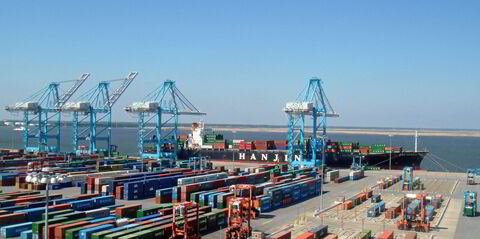Tighter central political control, more aggressive state-owned conglomerates and investment strategies in tune with foreign policy are the new shape of the Chinese business landscape following the most recent public rounds of Communist Party and state policymaking.
Attention has focused in recent months on Communist Party General Secretary Xi Jinping's personal power, after his reshuffle last October of the Communist Party's standing committee and the confirmation in March by the National People's Congress — China's nominal legislature — that Xi will not be limited to two presidential terms as his predecessors were.
But just as important as Xi's personal power may be his consistent focus on perpetuating and strengthening Communist Party power.
One area of policy that will set the terms of private-state competition under Xi is the increasingly common demand that even private and foreign-owned businesses operating in China submit key board decisions and top appointments to internal Communist Party cells for review.
Hand in hand with that goes Beijing's recently renewed insistence on a policy of encouraging industry consolidation through mergers and acquisitions (M&As) led by its central state-owned enterprises (SOEs), and the continued emphasis on extending China's financial and industrial reach abroad through Xi's keynote Belt and Road Initiative (BRI), including "Maritime Silk Road" projects from South East Asia to the Mediterranean and beyond.
Greater obstacles
Noted economist and China watcher Xie Guozhong (Andy Xie) says private enterprise will face greater obstacles to competition with state-owned giants as a result of the tightened Communist Party control.
Private players who have to answer to internal Communist Party committees will have a harder time in taking advantage of their greater efficiencies.
"One big effect of Party control of large enterprises will be on price competition," Xie told TradeWinds at a recent meeting of the Shanghai Foreign Correspondents' Club. "The private companies will not compete aggressively on price. The big SOEs are not going to be losing market share to them as much as before."
On the M&A front as well, Beijing makes no secret of its plans to beef up its SOE giants.
Xiao Yaqing, who is the state council's shareholder-in-chief as head of its State-owned Assets Supervision and Administration Commission (Sasac), assured reporters of that in January at the World Economic Forum in Davos, which Xi skipped this time around.
Mergers in general and especially foreign acquisitions have been in bad odour of late.
China has chastised a number of exuberant private domestic players who had made headlines with big M&A spends abroad, some of them very well connected politically. Big spenders Dalian Wanda Group, Anbang Insurance Group and Hainan-based conglomerate HNA Group have all turned to sellers of foreign assets such as HNA’s Dorian LPG stake, for which they have often overpaid in their rush to convert their yuan into foreign investment positions.
But when it comes to state-owned companies, Beijing is supporting its own acquisitive SOEs both at home and abroad.
In shipping and on the domestic front, that renewed enthusiasm could lead to a green light for the long-expected joining of giants in shipbuilding between the northern China Shipbuilding Industry Corp (CSIC) group of shipyards and its southern sister, China State Shipbuilding Corp (CSSC).
That would continue a state-owned merger wave that started with locomotive manufacturers and state shipowners Cosco and China Shipping Group. More recently, this included the fusion of power groups Guodian and Shenhua into China Energy Investment Corp (CEIC), whose Guodian and Shenhua predecessors were among China's biggest bulker charterers.
Cosco sets sights high
But China Cosco Shipping is clearly not finished being a state-sponsored consolidator, as it works to complete its acquisition of Hong Kong's Orient Overseas Container Line (OOCL) and may be eyeing up other owners both at home and abroad.
Growing the giants might seem a step backwards after China's decades of reform and opening. But to officials such as Xiao in the Xi era, SOE reform no longer entails reforming away the SOE sector in favour of a more robust private sector, if it ever did. It means picking state-owned winners and strengthening them to make them competitive both at home and on the global stage.
Beijing does acknowledge the legacy of operational bloat that faces many of its SOEs, but means to reform that part while still encouraging them to grow through M&A.
Many of China’s SOEs have their origin as government bureaus, with a mission to serve public needs both at a production and a social level — and many still bear structural and cultural traces of that mission. That definitely includes some of the world’s biggest shipowners, charterers and shipbuilders.
But Xiao told Reuters' reporters in Davos that Beijing would continue to trim the merged SOEs of their quasi-governmental functions, reduce their debt leverage, and help find new work for employees made redundant.
Xiao defended the tightened Communist Party cell control as all about maintaining the discipline necessary for this process.
“I can’t tell you what the SOE sector will be in 10 or 20 years,” Xiao said. "But we do hope that SOEs could be exactly like other companies: they will have higher liquidity of their assets and respond more efficiently to market changes."



